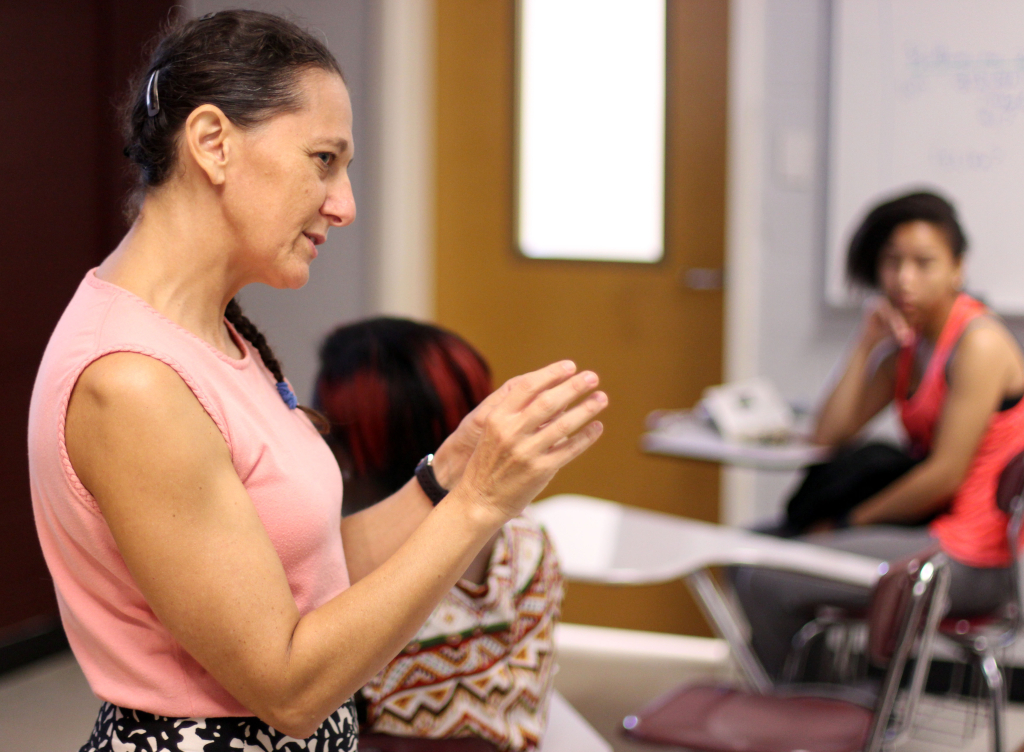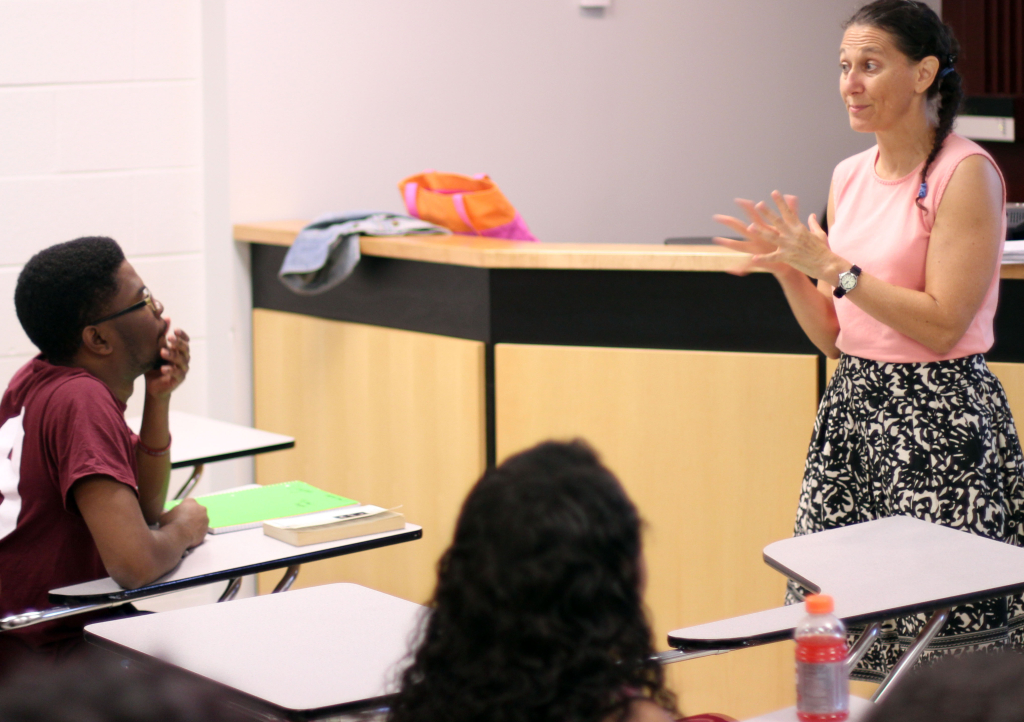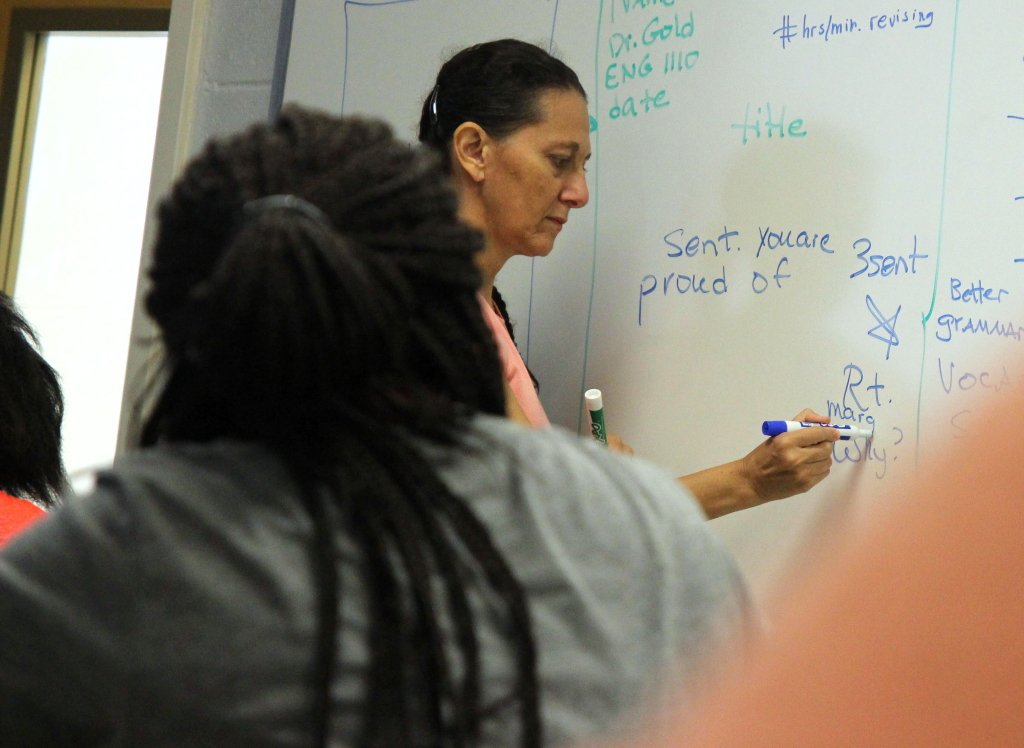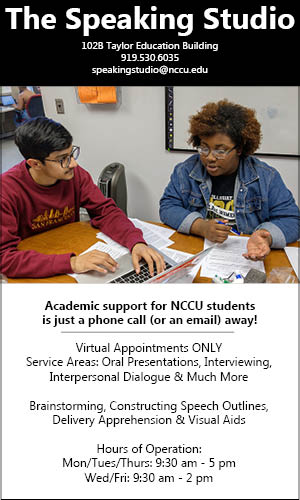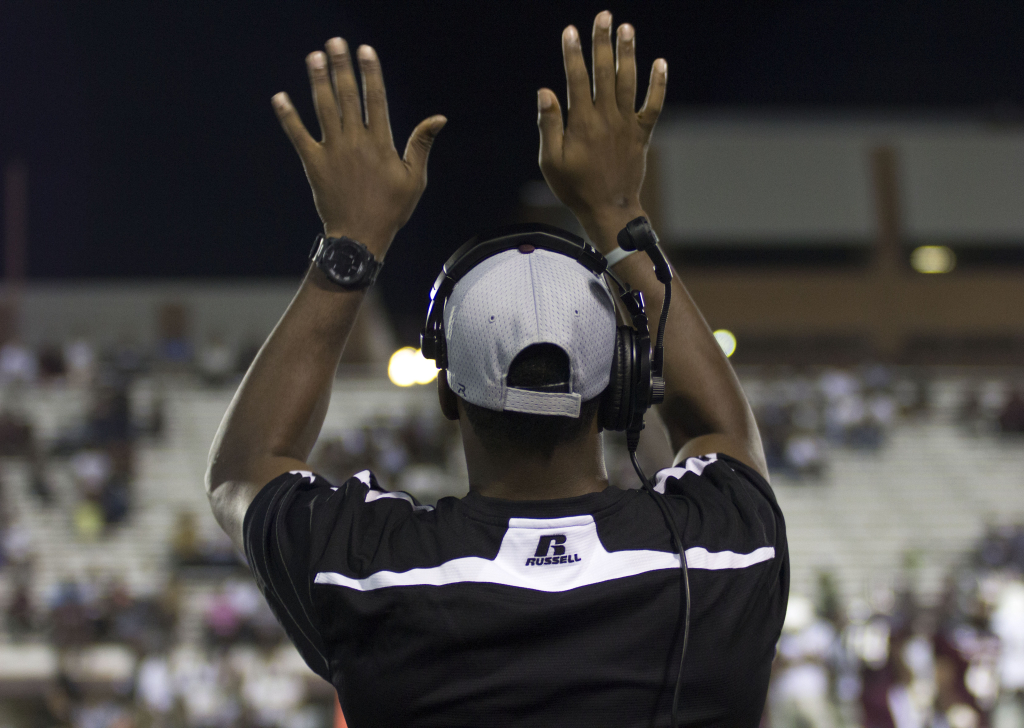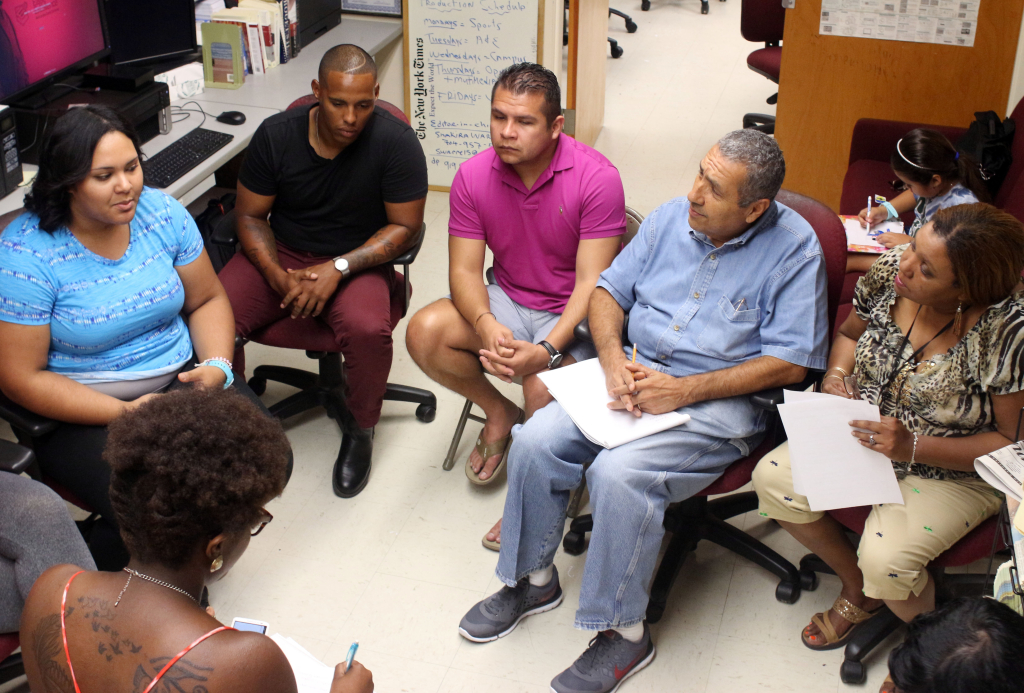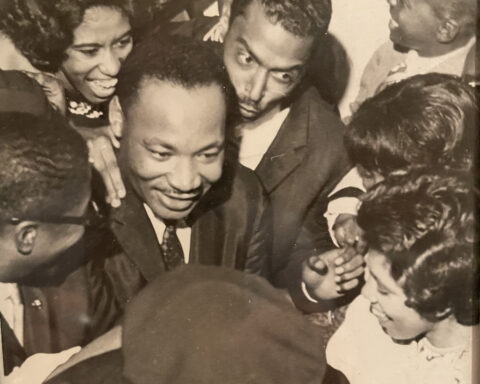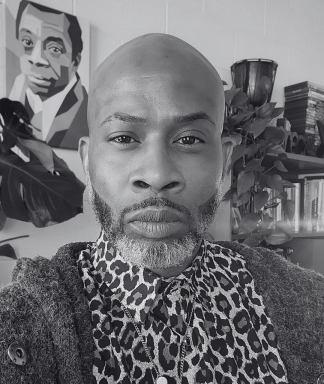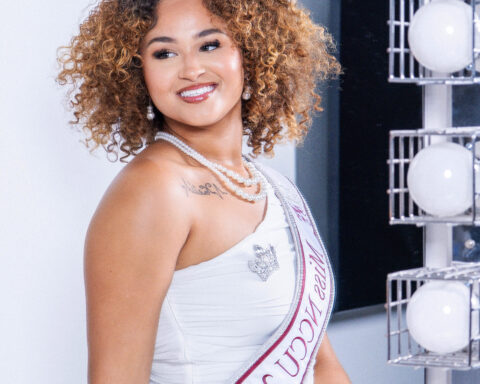“Teaching is love made visible” — Those were the words Rachelle Gold used to describe her passion for teaching. In the past year alone, Gold, an N.C. Central University assistant professor of English since August 2008, has received three awards in 2015: the NCCU Outstanding First-Year Advocate Award in March, the NCCU Award for Teaching Excellence in May and the Chancellor’s Award for Student Service in August.
“I’m very humbled by the fact that all three awards that I’ve won were student nominated,” Gold said. “The fact that other people thought enough of me to nominate me made my heart sing.”
A ‘completely and totally dedicated’ teacher
One of her student nominators, Amy Currle, an English literature senior, described Gold as “a tough, but fair and reasonable educator” who “never misses an opportunity to inspire students to realize their potential, regularly offering guidance and advice to students.”
Currle recalls the story of how she first met Gold. “I was strongly considering leaving the university when Dr. Gold responded to my email of inquiry regarding the English education program,” Currle said.
“She invited me to her office despite it being the most chaotic time of year. Dr. Gold greeted me with a beaming smile of welcome … [who] managed within minutes to convince me that I was welcome, making the right decision, and that NCCU’s English department would become my new home.”
In addition to the three awards Gold has received this year she received the Student Athletic Advisory Committee Teaching Award in 2014 and the Disabled Student Services Eagle Advocate Award in 2013.
“She’s completely and totally dedicated to her students,” said former Languages and Literature chair Michele Ware. “She spends a huge amount of time with them, and I think you can see that in the amount of awards she’s received.”
“Students know when a teacher really wants to help them, and she’s one of those kinds of teachers, a really caring individual,” Ware said. “Some teachers are content to just go in and lecture and leave, and that’s it. But for her I think that one-on-one connection is really important. Personally I always thought that my best teachings get done in those one-on-one conferences, and I think that she would probably agree with that.”
“Most of us are not in it for the money, we’re not in it for the fame, so the reason we’re here is to teach, and that connection to our students is really important to us.”
A background that helps her connect with students
Gold, a San Jose, Calif. native, graduated as valedictorian of the San Jose State University class of 1993, where she received her bachelor’s of arts degree in humanities. In 1995 she earned a master’s degree in English literature from Indiana University. In 2002 she earned a second master’s degree in education from the University of California-Berkeley. And in 2008 she earned her Ph.D. in education from the University of North Carolina at Chapel Hill.
Gold, now in her 14th year teaching, said she loves it more now than when she first started. “You have to have a really big heart to teach at our school, to connect with the students,” she said
Gold, who has experience teaching at two predominantly white institutions, universities, UC Berkeley and UNC Chapel Hill, said that the difference between teaching at an HBCU and a PWI is “not as much about race distinctions, but about socioeconomic distinctions.”
“The students are much more appreciative of me as an educator, and when a teacher teaches at a school like Berkeley or Chapel Hill, they’ve often been only “A” students,” Gold said.
“When we’re opening our doors of access more widely to these students from different parts of the state of North Carolina from rural communities, and maybe open the door to people who are the first in their family to go to college, there is an excitement and enthusiasm about those learning that sometimes, not always, when you’re at a place that’s super prestigious, that’s super high status, the students just expect the teaching.”
Gold said growing up in San Jose exposed her to a mix of cultures.
She says she gets what it’s like to be in a group that’s discriminated against because she’s Jewish, and she described herself as an advocate for diversity, especially religious diversity. She is passionate about LGBTQ equity. “Anything that’s not really mainstream, I’m an advocate for.”
“My family is Jewish. I’m Jewish, so I always felt like I didn’t belong. And so that’s another piece of the puzzle, so that when you are ‘other,’ this is a place that makes sense for me to feel like I fit in,” Gold said. “I don’t believe in this ‘race doesn’t exist,’ post-racial nonsense … It’s not that, I just see you for your name.”
Reflections on the experience of teaching at HBCUs vs PWIs
Gold said that what’s frustrating about teaching at an HBCU as opposed to a PWI is that we are at a high poverty campus. “Students often don’t have the books. Students can’t afford a parking place, so they’ll consistently be late because they can’t afford a parking permit and they’ll be driving around looking for a place to park.”
“Some of our students have lives that are very much on the edge, at the edge of moving from working class to the edge of being homeless,” she said. “So that’s the part that’s hard when you don’t have security in relationship to having food, in the relationship to not having utilities. It’s hard because it has an ability to interfere with someone’s studies.”
Gold said she has even used her own money to buy books for students.
She said when she was at Chapel Hill, she felt like her students were going to be ok, whether they had her as a teacher, or whether they had someone else. But she said she feels more needed here.
“I love teaching. I’m not saying I don’t have teaching frustrations. It is frustrating when I see students who make purchasing decisions. Like, when I see people with really fancy nails, or really fancy jewelry, or really fancy hair or nice kicks, and nice clothes, but they don’t have books, pens or paper. I do have judgement about that, because nothing is free.”
“I want them to improve as readers, writers and thinkers. I want all of my students to be the best that they can be. Not just scholastically of course, but also in terms of their own principles.”
In her spare time, Gold – a self-professed exercise addict – loves to box, swim, lift weights, Zumba, bike and yoga. She has even participated in triathlons. She’s also a scuba diver who travels to Belize in Central America to scuba dive in the barrier reef.
Gold said she gave away her TV 16 years ago, and that’s why she has so much time to exercise. She doesn’t have any children, so her main focus is her students, her dogs, and exercising.

